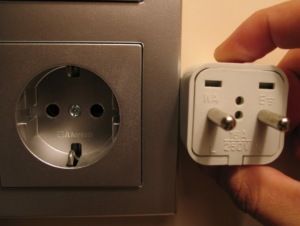News
Square peg problems: Danish EPA move could result in regulatory delays
This article is more than 7 years old.
Government program to spread jobs around the country has unforeseen consequences

The relocations are proving to be a bad fit (photo: Simon Law, Flickr)
The state’s plan for a more equitable distribution of governmental jobs throughout the country by relocating certain agencies is not without its problems.
The relocation of Miljøstyrelsen, the environmental protection agency (EPA), from Copenhagen to Odense next year could create delays in the agency’s work, as many of its currents experts and scientists are not making the jump. Just over half of the EPA’s 800 employees will be making the move to Odense.
An internal EPA risk assessment of the relocation published by Altinget warns the agency will lose experienced staff as a consequence of the move.
Brain drain
The EPA is in the process of recruiting new people, but there are concerns the complicated tasks they will be asked to perform have a difficult learning curve.
Biocides – defined under European law as any chemical substance or micro-organism intended to destroy, deter, render harmless, or exert a controlling effect on any harmful organism by chemical or biological means – will be one of the most affected areas.
Only a few of the EPA’s current toxicologists and ecotoxicologists are expected to head to Odense. It will take new recruits as many as two years to learn how to independently carry out biocide approval protocols, and as many as five years to become experts in the field.
EPA response
This lack of expertise will seriously hamper the EPA’s ability to meet its deadlines for evaluating EU authorisation. Even basic tasks like maintaining the agency website will suffer.
The EPA responded to the Altinget report by saying things were not as gloomy as portrayed.
“We are not affected by the loss of expertise to the extent the paper describes,” said the deputy head, Mads Leth-Petersen.
READ MORE: Relocation of government jobs could be much more expensive than planned
However, Leth-Petersen did say that the reorganisation in Odense could take some time and that he “cannot rule out a period of longer processing times”.
Aside from Miljøstyrelsen, entire institutions being moved out of Copenhagen include the state gas company, Statsligt Gasselskab; the authority for patient complaints, Patientklagestyrelsen; and the Danish energy regulatory authority, Energitilsynet.










































